Eating disorders, such as bulimia nervosa, can be challenging and overwhelming experiences. However, with the right support with and help with bulimia nervosa recovery, regaining health and well-being is possible.
In this comprehensive guide, we’ll explore what bulimia nervosa is, its subtypes, differences from other eating disorders, causes, diagnosis, signs and symptoms, health consequences, and more. We’ll also explore the recovery process, including seeking help, finding a dietitian, and what treatment for bulimia looks like.
What is Bulimia Nervosa?
Bulimia nervosa is an eating disorder characterized by recurrent episodes of binge-eating, followed by compensatory behaviors, such as self-induced vomiting, excessive exercise, or misuse of laxatives. Someone with bulimia may often consume large amounts of food in a short period of time, feeling a lack of control during these episodes.
People with bulimia often have an intense fear of gaining weight and are preoccupied with body image. They may maintain what appears to be a ‘normal’ body weight or may experience fluctuations in weight due to the binge-purge cycle.
Bulimia can affect individuals of any age, sex, gender, background, and body shape or size. It often goes unnoticed because those struggling with bulimia may not be extremely thin, which contrasts with the stereotypical way that people with eating disorders are often depicted in the media.
It’s important to note that an eating disorder is always serious and you are deserving of getting help with bulimia nervosa recovery, irrespective of your body weight, shape or size.
Subtypes of Bulimia Nervosa
There are two primary subtypes of bulimia:
- Purging Type: This subtype involves self-induced vomiting, or laxative, enema or diuretic misuse.
- Non-Purging Type: This subtype involves compensatory behaviors like excessive exercise or fasting, without self-induced vomiting.
How is Bulimia Different from Other Eating Disorders?
Bulimia differs from other eating disorders like anorexia nervosa and binge eating disorder.
While anorexia involves severe food restriction and fear of weight gain, and binge eating disorder is marked by binge eating episodes without compensatory behaviors, bulimia is characterized by the binge-purge cycle.
Who is at Risk for Bulimia?
Anyone can be at risk for bulimia, but it is more common in females. Adolescents and young adults are particularly vulnerable. Those with a family history of eating disorders, or individuals who have experienced trauma or body dissatisfaction, may also be at higher risk.
Bulimia often originates from weight loss attempts through dieting. The lack of food and insufficient nutrition can activate a response to starvation, resulting in an overwhelming craving to eat. In some cases, this desire to eat becomes uncontrollable, leading to extensive episodes of overeating whatever food is accessible, followed by efforts to compensate.
This pattern often repeats, creating a cycle of binging, purging, or excessive exercise that can progressively intensify.
What Causes Bulimia Nervosa?
The causes of bulimia are complex and multifaceted, involving a combination of genetic, environmental, psychological, and societal factors.
Factors that may increase the likelihood of developing bulimia include:
- Genetics: A family history of eating disorders can be a risk factor for bulimia.
- Psychological Factors: Low self-esteem, perfectionism, and difficulties in managing emotions can contribute to the development of bulimia.
- Dieting: Engaging in restrictive diets or weight loss attempts can increase the risk of developing bulimia.
- Trauma: Past traumatic experiences, including abuse or bullying, may trigger the onset of bulimia.
- Body Image Dissatisfaction: Societal emphasis on thinness and beauty standards can play a role in the development of bulimia, as someone strives to achieve an ‘idealised’ body shape.
- Food Insecurity: Those who have experienced periods of limited food availability, especially during periods of instability or childhood, are at higher risk of developing bulimia nervosa.
- Thin Ideal: the way in which society places ‘thin’ or ‘lean’ bodies on a pedestal can contribute to poor body image and the risk of developing bulimia.
Bulimia Nervosa in Men & the LGBTQIA+ Community
Despite how eating disorders are stereotypically represented, bulimia can affect individuals across all gender identities and sexual orientations, including men, and members of the LGBTQIA+ community. The impact of bulimia on these individuals may vary, but common themes may include:
- Stigma and Discrimination: Men and individuals from the LGBTQIA+ community may face additional stigma and discrimination when it comes to eating disorders. There can be a misconception that eating disorders primarily affect females, leading to delayed diagnosis and treatment. This can be a barrier to seeking help.
- Minority Stress: Minority stress, which arises from experiences related to discrimination and societal prejudice, can lead to higher levels of anxiety and depression. Coping mechanisms, including disordered eating, may develop as a response to this stress.
- Identity and Gender Dysphoria: For trans and non-binary people, body dysphoria and the process of transitioning can contribute to body dissatisfaction, which may manifest as eating disorders. Bulimia may serve as a way to control or change someone’s body to align with their gender identity.
- Unique Triggers: Members of the LGBTQIA+ community may face unique triggers related to their identity, such as the pressures associated with coming out, rejection from family, or discrimination. These experiences can play a role in the development or exacerbation of eating disorders.
It is important to consider the specific needs and experiences of these individuals in the context of bulimia. Culturally competent and inclusive support and resources are needed for safe, effective treatment and recovery.
 Get your copy of my free 3 Steps To Stop Cravings eBook here!
Get your copy of my free 3 Steps To Stop Cravings eBook here!
How is Bulimia Diagnosed?
Diagnosing bulimia involves a clinical assessment by a healthcare professional, such as a general practitioner, psychologist or psychiatrist. The diagnosis is based on criteria defined in the Diagnostic and Statistical Manual of Mental Disorders (DSM-5), which includes recurrent binge-eating episodes and compensatory behaviours.
Signs and Symptoms of Bulimia Nervosa
One person’s experience of bulimia may differ from another’s, but there are some warning signs to look out for, including:
Physical Signs
- Frequent weight fluctuations
- Dental issues like tooth decay, bad breath and gum problems due to vomiting
- Swelling of the salivary glands, which can show up as face swelling around the cheeks or jaw
- Digestive problems, including stomach pain and ulcers
- Calluses on knuckles
Psychological Signs
- Obsession with body weight and shape
- A distorted body image and fear of weight gain
- Feelings of guilt, shame, or low self-esteem
- Anxiety and depression
Behavioural Signs
- Frequent episodes of binge-eating followed by purging or compensatory behaviors
- Social withdrawal and secrecy surrounding eating habits
- Excessive exercise
- Engaging in self-injury, substance misuse or suicide attempts
- Frequent bathroom trips, especially after meals
Health Risks of Bulimia Nervosa
Bulimia Nervosa carries several physical and psychological health risks, including:
- Electrolyte Imbalances: Frequent purging can lead to electrolyte imbalances, affecting the heart and other organs.
- Gastrointestinal Issues: Bulimia may cause digestive problems, such as gastritis, esophagitis, stomach rupture, constipation, diarrhoea, and peptic ulcers, due to the corrosive effects of stomach acid during vomiting.
- Dental Problems: Frequent vomiting can erode tooth enamel, leading to dental cavities, gum disease, and tooth sensitivity.
- Heart Complications: Bulimia can lead to heart issues, including low blood pressure, fainting, arrhythmias and, in severe cases, heart failure and even death.
- Mental Ill Health: Bulimia often co-occurs with depression, anxiety, and other mental health disorders.
- Reproductive Issues: Women with bulimia may experience menstrual irregularities, amenorrhea, and fertility issues.
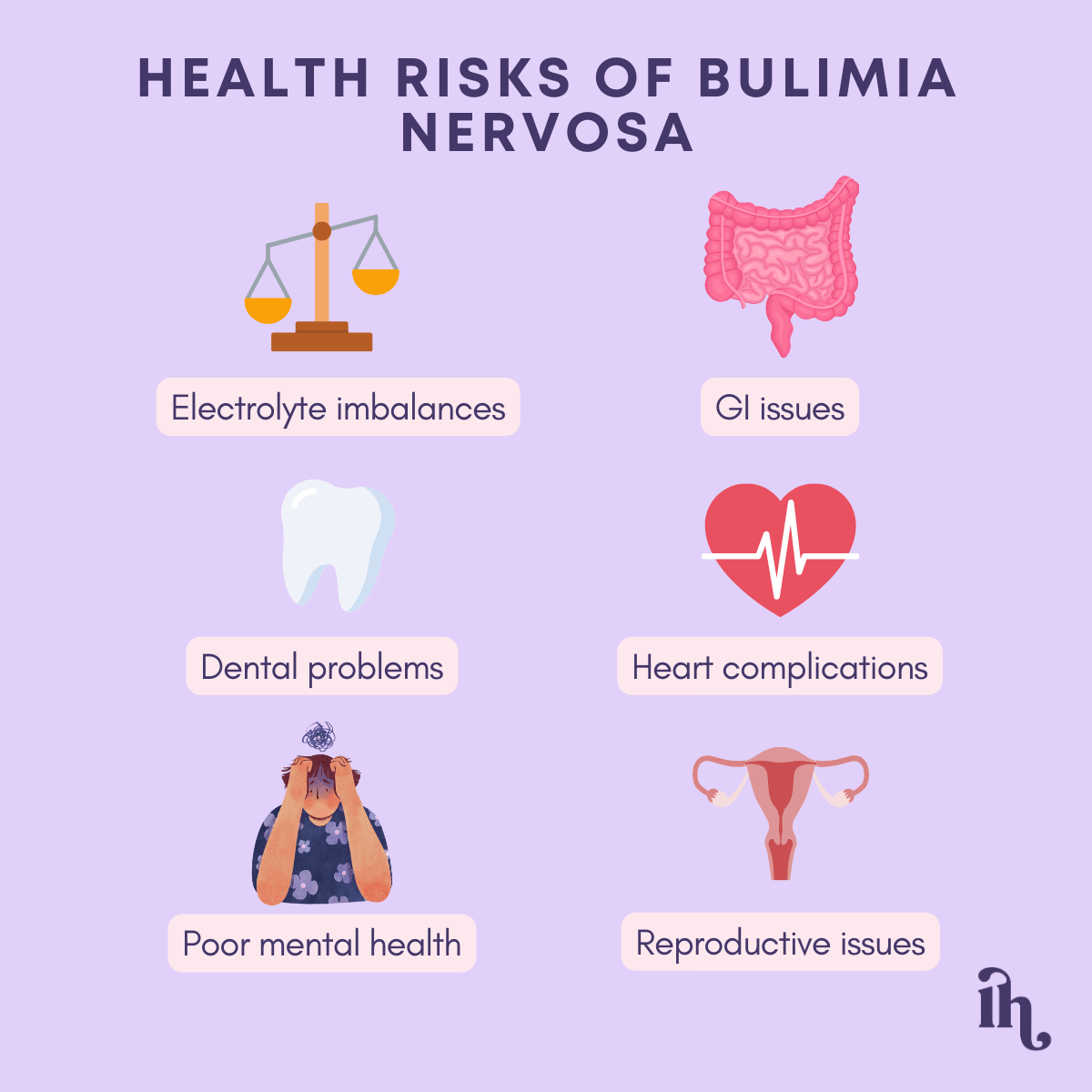
How Does Bulimia Affect Pregnancy?
The natural changes in weight and shape during pregnancy, along with food cravings, can intensify eating disorder behaviours in bulimia.
While some pregnant individuals may experience a positive shift in body image due to the awareness of their body’s role in nurturing and sustaining life, others with bulimia might face increased challenges.
The physical changes that accompany pregnancy, such as weight gain and alterations in body shape, can trigger anxiety and distress for those struggling with their body image, especially with the pressure to meet societal expectations of having a ‘perfect’ pregnancy body.
The emotional and hormonal changes during pregnancy may also intensify the psychological aspects of bulimia, potentially leading to increased binge-purge cycles.
Bulimia during pregnancy can lead to various complications, including malnutrition, dehydration, electrolyte imbalances, low birth weight, delayed prenatal care, gastroparesis, and an increased risk of postpartum depression. People with bulimia may have an elevated likelihood of needing fertility treatments.
Specialised prenatal and postnatal care and support are essential for those with a history of bulimia who are pregnant, to manage and reduce these potential risks. Book a discovery call with one of our Imbodi Health dietitians to discuss support options.
What to Do if You Think You Have Bulimia?
If you suspect that you may have bulimia, it’s important to reach out for support and professional help. You may like to start by confiding in someone you trust, such as a friend, family member, or a healthcare professional who is experienced in eating disorders.
Sharing your concerns can be a vital first step toward understanding and addressing the challenges you’re facing.
Seeking help with bulimia recovery from a doctor, dietitian or therapist who is experienced in eating disorders can help you navigate the complexities of diagnosis and treatment.
What Does Treatment for Bulimia Look Like?
Effective treatment for bulimia usually involves a combination of psychological therapy, medical management, and nutritional guidance. It’s important to seek professional help as early as possible.
Treatment may include:
- Cognitive-Behavioral Therapy (CBT): This is a well-established form of therapy that focuses on identifying and changing thought patterns and behaviors associated with bulimia.
- Interpersonal Psychotherapy (IPT): IPT helps individuals improve their relationships and communication, which can be valuable in addressing the emotional aspects of bulimia.
- Dialectical Behaviour Therapy (DBT): DBT is a therapeutic approach that combines cognitive-behavioral techniques with mindfulness strategies to help individuals manage intense emotions and develop healthier coping mechanisms.
- Family-Based Treatment (FBT): Designed for young people, FBT involves the family in the treatment process, focusing on restoring regular eating patterns and addressing familial dynamics that may contribute to bulimia.
- Medication: In some cases, healthcare providers may prescribe antidepressants, such as selective serotonin reuptake inhibitors (SSRIs), to manage co-occurring mood disorders.
- Nutrition Counseling: Dietitians and nutritionists can help someone develop a healthy relationship with food and establish regular eating patterns.
- Support Groups: Group therapy or support groups can offer a sense of community and understanding as someone navigates their recovery journey.
Recovery from bulimia is a process, and professional support is essential. Seeking help is the first step toward healing and reclaiming your relationship with food.
How Can a Dietitian Help with Bulimia?
Working with a dietitian is essential during the recovery process to provide support in the following areas:
- Personalised Meal Plans: Dietitians can work closely with you to create a meal plan that caters to your specific nutritional needs and goals. These plans not only help ensure a balanced and nourishing diet, but they also promote regular eating patterns, which can be a big step in breaking the cycle of bingeing and purging.
- Nutritional Rehabilitation: Dietitians help in restoring nutritional balance and addressing any deficiencies or imbalances that might have arisen from behaviours associated with bulimia.
- Improving Dietary Flexibility: A dietitian can support you to develop a more flexible and sustainable relationship with food. They work with you to reduce food rules and fears, encouraging a more relaxed and enjoyable approach to eating.
- Educational Support: Dietitians can empower you with education on the nutritional aspects of food, debunking myths and misconceptions so you feel confident in putting together meals and snacks that meet your nutritional needs.
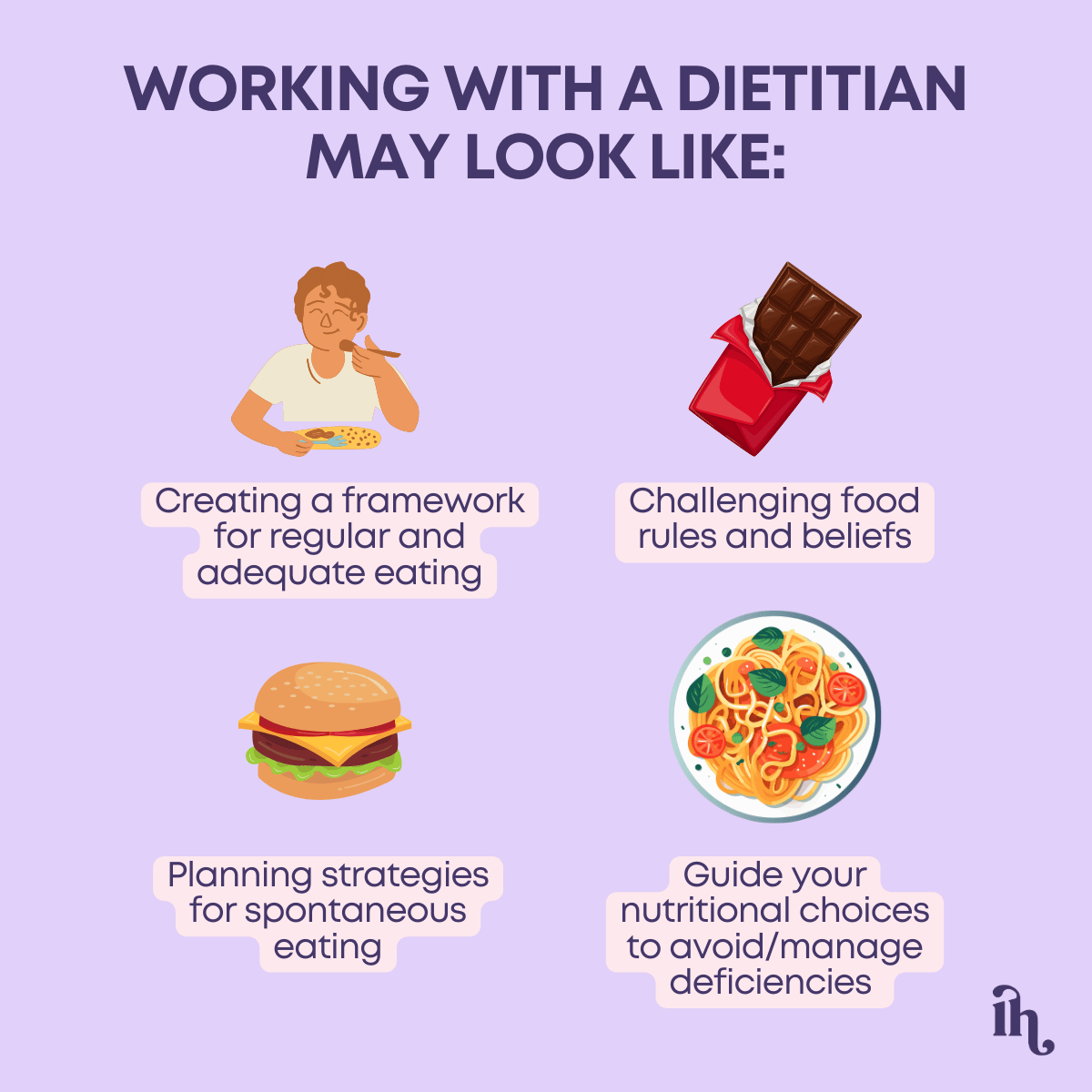
How Do You Find a Dietitian to Help with Bulimia Recovery?
At Imbodi Health, our dietitians are specialised in supporting people with recovery from bulimia nervosa. We are passionate about helping you develop a better relationship with food and make peace with your body, so you can enjoy life to the fullest. You can read more about our team here.
Bulimia Self-Help Books
Self-help resources, including books, can be valuable tools in bulimia recovery. They provide insights, strategies, and coping mechanisms to aid in the healing process alongside professional treatment.
How Can I Prevent Bulimia?
Preventing bulimia involves early education about healthy body image, self-esteem, and coping skills. Encouraging open communication about mental health can also contribute to prevention.
Frequently Asked Questions
Can Bulimia Cause Gastroparesis?
Yes, prolonged bulimia can lead to gastroparesis, a condition in which the stomach muscles no longer work properly, causing delayed digestion.
Can You Exercise During Bulimia Recovery?
Exercise should be approached with caution during recovery. Consult with healthcare providers to determine a safe and balanced approach to physical activity.
How often do I see my dietitian?
The best results come for working with your dietitian on a regular basis. Our coaching programs offer the option of working with your dietitian weekly or fortnightly.
I Think My Friend Has Bulimia, What Should I Do?
Approaching a friend about their potential eating disorder can be challenging. Express your concern and encourage them to seek professional help. Be supportive and non-judgmental.
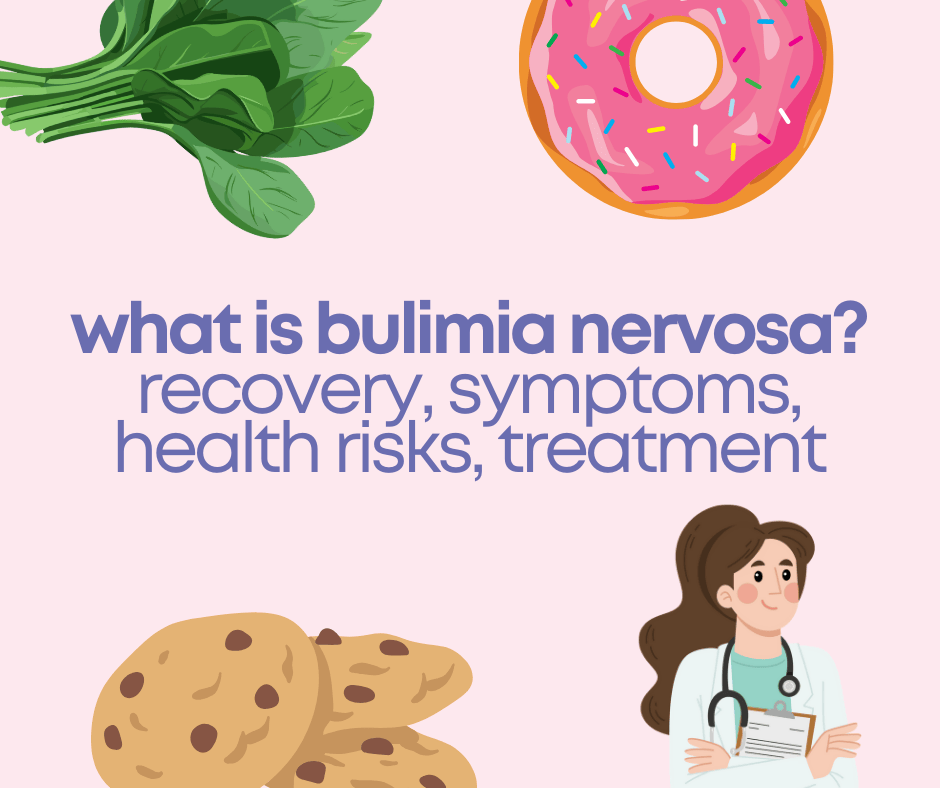
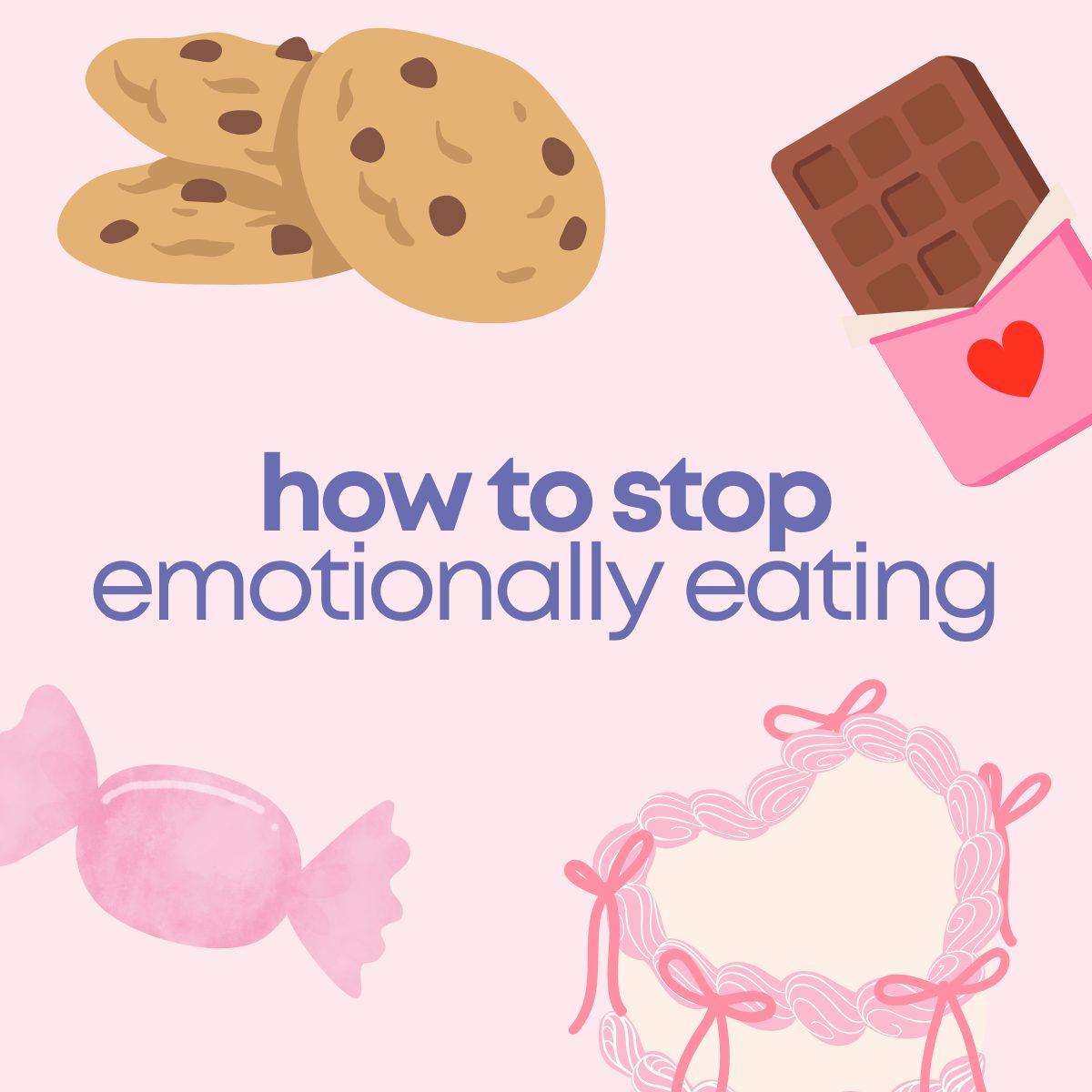
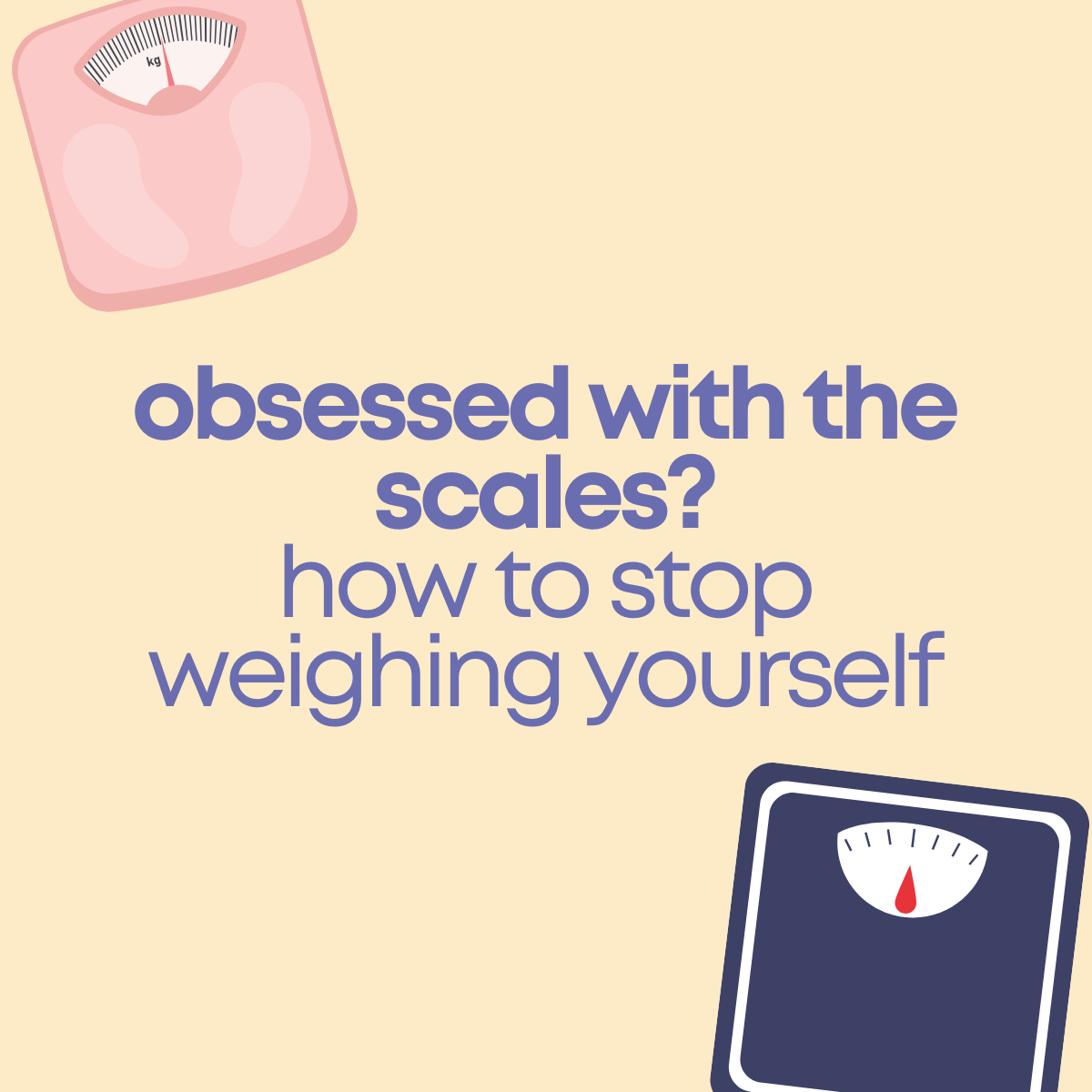

Comments +